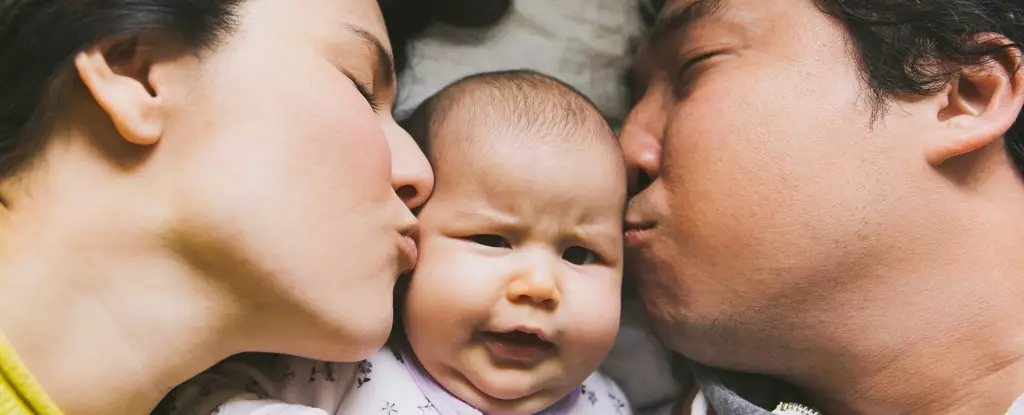In various fields, professionals often encounter a significant cognitive bias known as “the curse of knowledge.” This bias leads experts to assume that non-experts share their level of understanding about specific topics. For example, as a clinical microbiologist, I often find myself assuming that others are equally aware of the potential dangers associated with certain practices, such as kissing newborn babies. This common misconception can pose considerable risks, particularly when dealing with the sensitive immune systems of infants. Recent discussions on platforms like TikTok have highlighted a glaring gap in public awareness regarding the dangers of kissing newborns, as illustrated by the viral warnings from figures like Dr. Karan Raj, an NHS surgeon.
The Vulnerability of Newborns
The danger behind kissing a newborn lies in the fact that their immune systems are not yet fully developed. At birth, infants are incredibly vulnerable to infections because they possess lower levels of critical immune cells that are essential for fighting off pathogens. Neutrophils and monocytes—key components of the innate immune response—are present in fewer numbers compared to those in adults or older children. This means that pathogens, which typically induce only mild symptoms in older individuals, can lead to severe, even life-threatening conditions in newborns.
One such example is the herpes virus. While adults might experience relatively benign symptoms such as cold sores, an infant can suffer serious consequences should they contract the virus. If the herpes virus affects an infant’s organs or systems, the prognosis can be dire, especially within the first few weeks after birth when the baby is most susceptible.
Furthermore, newborns also face a heightened risk of infectious bacteria, particularly intracellular pathogens such as group B streptococci (GBS). These bacteria typically flourish within the gastrointestinal and genital tracts of adults without causing any harm. However, in infants, GBS can lead to severe infections such as sepsis, pneumonia, and meningitis. E. coli strains that most adults may encounter without any issue can similarly threaten the health of newborns, potentially causing life-threatening conditions.
Parents of young infants are often blindsided by the potential dangers that exist in seemingly innocuous interactions with well-meaning visitors. The anxiety surrounding infant health can be overwhelming, leading many to question whether their protective instincts are exaggerated. However, it is crucial for both parents and visitors to remain vigilant against obvious threats to a baby’s health.
As we navigate relationships with friends and family during those newborn stages, parents should feel empowered to communicate their boundaries. Asking for no kisses or avoiding direct contact with the baby may seem like a socially awkward request, but it is a necessary precaution. Visitors who genuinely care about the infant’s wellbeing will understand and respect these choices, recognizing the necessity of protecting the most vulnerable members of society.
If a kiss is unavoidable due to familial affection or social expectations, certain precautions can be taken to minimize the risk of transferring infections. It is recommended for visitors to wash their hands thoroughly and to avoid kissing the baby on the face or mouth. Opting to kiss areas like the top of the head or a foot can serve as a more considerate alternative.
For those with any active infections or symptoms of illness, it’s important to evaluate the necessity of visiting a newborn. Maintaining distance, wearing masks, and taking caution to avoid close contact can help mitigate risk. Remember, the love we feel for infants should translate into responsible actions that prioritize their health above social norms. Understanding the severity of these risks ensures that we fulfill our role in safeguarding these fragile lives during their early, formative weeks.
While demonstrating affection towards newborns is a natural inclination, it is crucial to remember the profound implications of such gestures. By fostering a culture of knowledge and respect for newborn health, we can dramatically lower the risks of serious infections and contribute to healthier beginnings.

